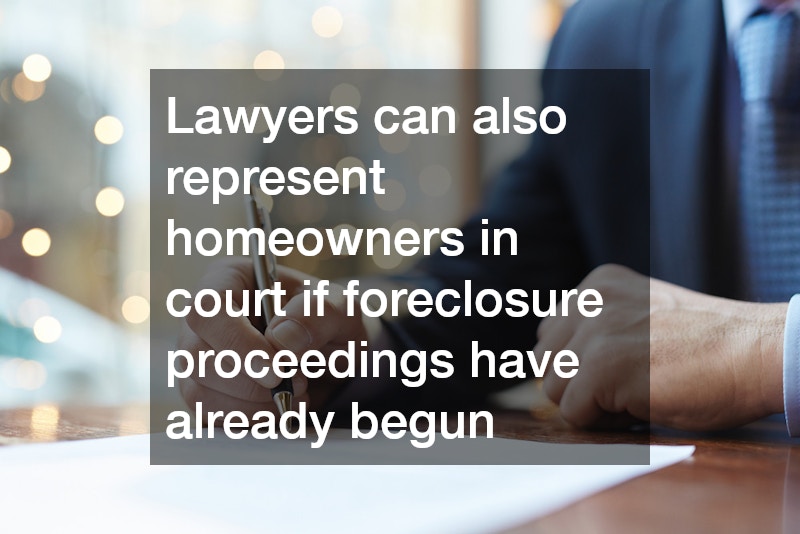
Home foreclosure can be a daunting experience for many homeowners. Explore how legal assistance can help prevent foreclosure, and find answers to some of the most pressing questions surrounding this topic. Understanding the complexities of foreclosure is crucial for homeowners.
Facing the possibility of home foreclosure can be one of the most stressful experiences a homeowner endures. Missed payments, unexpected financial hardships, or complicated loan terms can quickly place a family’s home at risk. However, legal assistance can play a crucial role in preventing foreclosure and protecting homeowners’ rights. Experienced foreclosure attorneys understand the legal processes, lender obligations, and potential solutions available to those in financial distress. With their help, homeowners can explore options such as loan modifications, repayment plans, or mediation—steps that may stop foreclosure and provide time to regain financial stability. By seeking professional legal guidance early, homeowners have a stronger chance of keeping their homes and securing a more stable financial future.
Learning the Warning Signs
The warning signs of impending foreclosure can manifest in several ways. Homeowners often miss mortgage payments, which may set off alarms regarding their financial stability. Additionally, receiving notices or communication from the lender can indicate that the situation is becoming critical.
Another clear sign is the accumulation of missed payments. If a homeowner notices they are falling behind on their mortgage obligations, it’s essential to take that seriously. Ignoring these red flags can exacerbate the situation and lead to eventual foreclosure.
Furthermore, changes in financial circumstances, such as job loss or medical emergencies, can create challenges that push homeowners closer to the edge of foreclosure. An awareness of these signs can empower homeowners to seek legal assistance sooner rather than later.
Recognizing How a Lawyer Can Help
A qualified attorney can be an invaluable asset for homeowners facing foreclosure. Legal professionals are equipped to negotiate with lenders on behalf of homeowners, aiming for more favorable terms that can stave off foreclosure. They understand the intricate legal frameworks surrounding mortgage agreements and can identify potential weaknesses in the lender’s case.
Additionally, lawyers can help homeowners file for bankruptcy when necessary. This legal action can halt foreclosure proceedings while giving homeowners a chance to reorganize their financial obligations. In some cases, bankruptcy may allow homeowners to keep their property while addressing their debts.
Lawyers can also represent homeowners in court if foreclosure proceedings have already begun. Their expertise can make a significant difference in the outcome, as they are skilled at presenting the case and arguing for alternatives to foreclosure. This representation can provide a stronger footing for homeowners who may otherwise feel overwhelmed.
Knowing Your Options
Homeowners facing foreclosure have several legal options to explore. One common path is loan modification, where the homeowner negotiates with the lender to adjust the terms of the loan to make it more manageable. This may involve reduced interest rates or an extension of the repayment period.
Another viable option is a short sale, where the property is sold for less than the amount owed on the mortgage with the lender’s consent. This can prevent foreclosure and minimize damage to the homeowner’s credit score. Homeowners should consult with legal professionals to navigate this process effectively.
Finally, the possibility of forbearance can also be explored, where the lender may temporarily reduce or suspend payments. This option typically requires a detailed plan to help the homeowner get back on track financially in a set timeframe. Legal assistance can help homeowners understand which option best suits their situation.
Understanding the Foreclosure Process
The foreclosure process typically begins when a homeowner misses a series of mortgage payments, prompting the lender to take action. The lender will initiate the process by sending a notice of default, informing the homeowner that they are behind on payments. This stage marks a critical time for homeowners to seek legal advice.
After the notice of default, the lender may initiate foreclosure proceedings, which can vary by state. Homeowners usually have a specific timeframe in which they can either rectify the situation or prepare for potential legal proceedings. Understanding this timeline is crucial for taking immediate action.
If no resolution is found within the established timeframe, the lender may proceed with a foreclosure sale, during which the property is auctioned to recover the owed amount. Legal assistance can provide homeowners with options to intervene before this point, making it vital to act quickly when foreclosure seems imminent.
Avoiding Foreclosure
Finding the right legal assistance requires thorough research and consideration. Homeowners can start by asking for recommendations from friends, family, or local community organizations. Many legal aid societies also offer services for homeowners facing foreclosure.
It is essential to consult with a real estate attorney who specializes in foreclosure cases. The right attorney should provide a clear outline of their fees, services, and approach to dealing with foreclosures. Meeting with potential lawyers can help homeowners gauge their competence and whether they feel comfortable working with them.
Finally, homeowners should gather all relevant documents, including mortgage agreements and communication with lenders, before meeting with a lawyer. This preparation can aid the attorney in quickly understanding the situation, allowing them to provide effective advice and support to prevent foreclosure.
Seeking legal assistance can play a crucial role in preventing home foreclosure. By understanding the signs, knowing the legal options available, and finding the right support, homeowners can take proactive steps to protect their homes. The importance of early intervention cannot be overstated.



